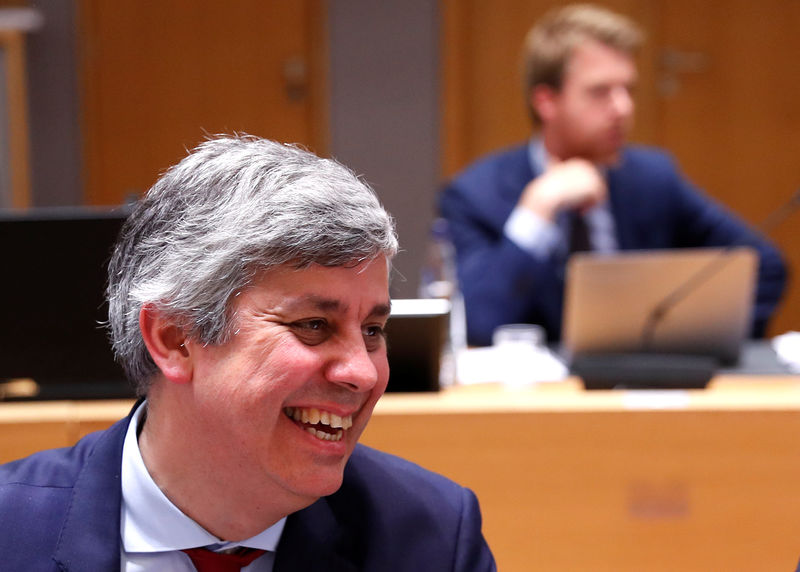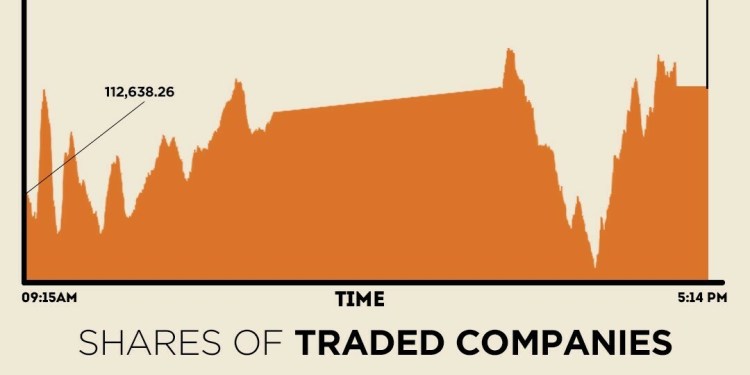 © Reuters. Portugal’s Finance Minister and Eurogroup President Centeno attends a eurozone finance ministers meeting in Brussels
© Reuters. Portugal’s Finance Minister and Eurogroup President Centeno attends a eurozone finance ministers meeting in BrusselsBy Jan Strupczewski
WHISTLER, British Columbia (Reuters) – Euro zone lenders will put together a debt relief deal for Greece that will be credible to markets and involve a rescheduling of loans from the second Greek bailout, said Mario Centeno, chairman of the euro zone finance ministers group.
Centeno spoke to Reuters after talks on Saturday morning between top euro zone policymakers and the International Monetary Fund on the sidelines of a meeting of G7 financial leaders in the Canadian mountain resort of Whistler, British Columbia.
The aim was to secure last-minute backing from the IMF for the euro zone debt relief offer for Greece so that it is credible with markets and draws investors back to Greece after it exits its bailout on Aug. 20.
There was no deal on Saturday, but the euro zone and the IMF agreed to continue talks next week to have an agreement ready for June 21, when euro zone finance ministers, called the Eurogroup, want to seal the details of the debt offer.
“We continue to work with the IMF, there are meetings scheduled on our way to June 21st and everyone must be reassured that the decision (on debt relief) will provide Greece with market access … from the 20th of August,” said Centeno, who is Portugal’s finance minister.
After three successive bailouts since Greece lost market access in 2010, euro zone governments are now Athens’ main creditors with outstanding loans of 230 billion euros so far.
The IMF took part in the first two bailouts, but refused to join in the third, started in 2015, until the euro zone agrees how to make Greek debt, now at 179 percent of GDP, sustainable.
Without substantial debt relief from the euro zone, private investors will stay away from Greece, fearing a collapse of its public finances at some point, the IMF argues.
ELEMENTS OF DEBT RELIEF PACKAGE
There is agreement between the IMF and the euro zone there will be no “haircut” – a reduction in the principal of the debt – but only an extension of maturities and grace periods.
In May 2016, the euro zone promised to extend the maturities and grace periods on Greek loans so that Greece’s gross financing needs are below 15 percent of GDP after 2018 for the medium term, and below 20 percent of GDP later.
Last June, under strong pressure from the IMF, euro zone ministers said they would be ready to consider extending the maturities and grace periods by a range from zero to 15 years. The average maturity now is 32 years.
Many euro zone policymakers see the IMF’s stamp of approval on the debt relief offer as key for its credibility with financial markets. But Centeno thought differently.
“I wouldn’t put it like that,” he said.
“I think people will be able to read the final package that will be agreed upon and the IMF is going to be involved in the future no matter what because of the huge financial engagement that the IMF has in Greece already,” he said.
He said the euro zone planned to consider only the 131 billion euros of loans from the second bailout for maturity reprofiling.
“We continue to work within the agreed lines. This means vis-à-vis the EFSF loans that the extension can be up to 15 years. This is what is being discussed. Along with other debt measures that will be also considered now,” he said, referring to the European Financial Stability Facility.
Other measures include replacing more expensive IMF loans to Greece with cheaper euro zone ones, returning profits made by euro zone central banks on Greek bonds to Athens and linking the pace of debt repayments to the rate of Greek economic growth.
The IMF wants the EFSF loan maturity and grace period extension to be the maximum 15 years. It also wants it to be automatically prolonged for an indefinite period, if needed to ensure Greek gross financing needs stay below 20 percent of GDP.
Germany and several other northern European countries would like shorter extensions and no automatic prolongation, but instead quarterly reviews to make sure Greece is not reversing reforms agreed and implemented under the three bailouts.
To make sure that Greece sticks to reforms, the euro zone wants to insert a clause into the debt agreement that it would become null and void unless Greece keeps its primary surplus at 3.5 percent of GDP until at least 2022.
Source: Investing.com




























